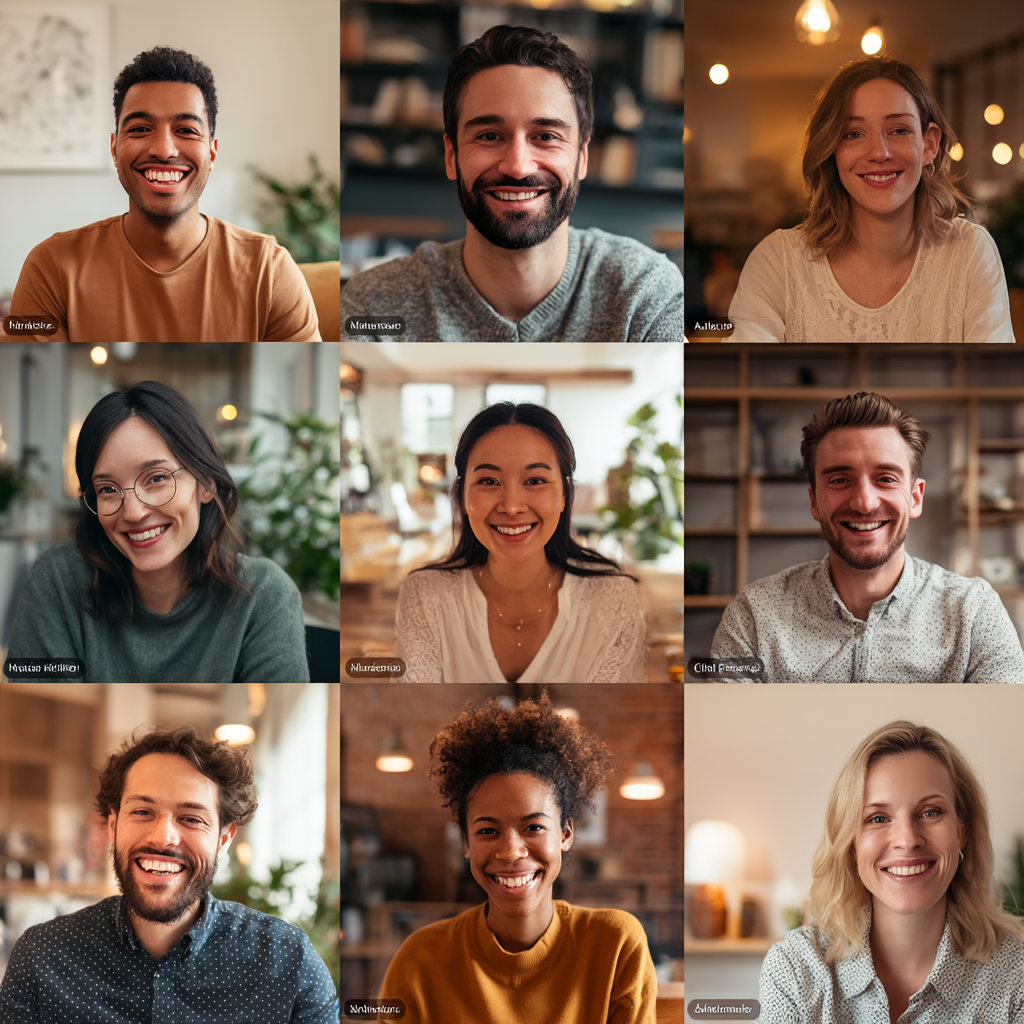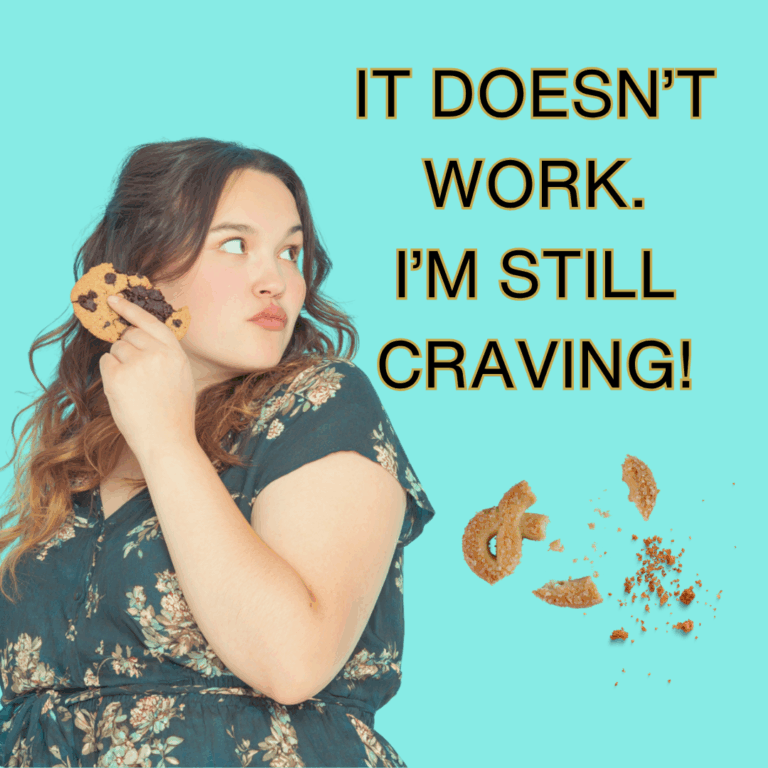By Mike, The SugarFreeMan
Founder of SugarDetox.com and the 30-Day Sugar Freedom Challenge
I’ve been thinking a lot about the call we had last Wednesday night.
For those of you who didn’t get a chance to hear it.
Something magical happened on that call. People were honest and upfront about what was really going on with them in ways I rarely see – even in our private forum where folks are already pretty vulnerable.
They asked questions about repeated failures in their attempts to bring sugar under control. They were truly vulnerable. They let down their guards and did whatever it took to understand why they’d failed so much with the sugar thing.
They didn’t care what others on the line thought. They didn’t hold back. The questions were tough and revealing.

After 35 years helping people break free from sugar addiction, I’ve learned this: sugar recovery takes an inordinate amount of support. Reading articles isn’t enough. Having a meal plan isn’t enough. You need real human connection with people who truly understand the struggle.
This article was review by Dr. Camela McGrath, MD, FACOG. Find more about her here
The Questions That Changed Everything
The questions on that call weren’t surface-level.
Someone asked about managing kids and sugar when you’re trying to stay clean yourself – one of the hardest situations any sugar-free parent faces.
Several people asked about quitting once but always ending up back on sugar at some point. That’s the pattern that haunts so many people: you get free, you feel amazing, then somehow you’re back in it.
One woman shared that she’d lost 100 pounds by quitting sugar – and still ended up back on it.
That type of honesty. That type of courage to just say “the heck with what it looks like” and ask the questions necessary to move forward.
That was the magic of the call.
We stayed on just shy of two hours, and I think we could have gone longer. People didn’t want to hang up. They’d found something rare: a space where they could be completely honest about their sugar struggles without judgment.
The One Thing That Makes All the Difference
The big takeaway from that call for me – the thing I’ve been mulling over since – is this:
Sugar recovery takes an inordinate amount of support.
It takes a village.
Just like it takes a village to raise a child, it takes a village to raise a recovered sugar addict.
You’re not just changing what you eat. You’re rewiring decades of neural pathways. You’re breaking a genuine addiction. You’re learning to cope with stress, emotions, and life without your primary coping mechanism.
And you’re doing all of this in a world that’s completely sugar-soaked – every celebration, every meeting, every social gathering.
Research from the NIH confirms that sugar activates the same reward pathways in the brain as cocaine and other addictive drugs. This isn’t about willpower. This is about brain chemistry.
You cannot fight brain chemistry alone. You need people.
What Makes Sugar Recovery Different From Other Addictions
Here’s why sugar addiction is uniquely difficult: Here’s the unique challenge with sugar addiction:
- It’s socially acceptable – Nobody offers a recovering alcoholic a beer at a birthday party, but they’ll definitely offer you cake.
- It’s everywhere – You can’t avoid sugar the way you might avoid bars.
- It’s not taken seriously – People minimize your struggle with “just have one bite.”
- It’s tied to celebration and comfort – Sugar isn’t just food; it’s how we celebrate and cope.
- It’s invisible – Hidden sugars are in everything from bread to salad dressing.
- You’re physiologically dependent – Your body rebels when you stop.

This is why you need people who understand these challenges. People who won’t tell you to “just have willpower.” People who know exactly what you’re facing.
Why Most People Try in Isolation (And Why It Fails)
Most people try to quit sugar in isolation.
They don’t tell anyone. They don’t ask for help. They white-knuckle it alone in their kitchen at 9 PM when the cravings hit.
And they fail.
Not because they’re weak – but because they had no one to talk to about the wild feelings that come up, the mood swings, the many little things that come with long-term sugar abstinence.
Let me paint a picture:
Isolated recovery looks like this:
- Day 3: You’re irritable and think something’s wrong.
- Day 7: You’re at a work event surrounded by desserts.
- Day 12: You have a headache and feel exhausted.
- Day 18: You’re stressed and eat cookies.
- Day 19: You feel ashamed and give up.
Supported recovery looks like this:
- Day 3: You post, “Is this normal?” and get encouragement.
- Day 7: You text your accountability partner for help.
- Day 12: You share your symptoms and get advice.
- Day 18: You reach out before you cave.
- Day 19: You celebrate not giving in.
The difference isn’t you. The difference is support.
What Real-Time Support Actually Does for Your Recovery
There’s something powerful about voice-to-voice connection that forums can’t replicate.
- Hearing someone’s voice makes you feel less alone.
- Real-time problem-solving gets you through the moment.
- Being known makes recovery personal and healing.

Why We’re All a Little Ahead of Our Time
We’re ahead of our time.
The mainstream world still says “everything in moderation.” They don’t see sugar addiction for what it is. But we do. We’ve lived it. We know it hijacks the brain’s reward system.
Our time is now. Waiting isn’t an option anymore.
We’ve realized: we need each other.
What a Sugar Support Call-In Group Would Look Like
Here’s what I’m thinking:
The Format:
- Weekly calls
- Open Q&A
- Facilitated guidance
- Safe space
- Recordings available
Topics we’d cover:
- Detox symptoms
- Family and social challenges
- Relapse recovery
- Hidden sugars
- Emotional triggers
- Long-term maintenance
Who it’s for:
- People serious about sugar recovery
- Those ready to be honest and vulnerable
- Supportive community-minded members
Why This Would Take Your Recovery to Another Level
Adding phone calls changes everything.
- Accountability gets real.
- Learning accelerates.
- Isolation breaks.
- Hope becomes real.
The people who make it long-term aren’t the ones with the most willpower – they’re the ones with the most support.
What I Need From You
I need your feedback.
Would you join a weekly sugar support call if we offered it?
If yes, comment below: “Heck yeah,” “I’m in,” or “Yes, please.”
If you’re not yet part of our community, join the 30-Day Sugar Detox Challenge for access to the forum and updates when the calls launch.
Why We’re All a Little Ahead of Our Time
We’re ahead of our time.
The mainstream world still says “everything in moderation.” They don’t see sugar addiction for what it is. But we do. We’ve lived it. We know it hijacks the brain’s reward system.
Our time is now. Waiting isn’t an option anymore.
We’ve realized: we need each other.
What a Sugar Support Call-In Group Would Look Like
Here’s what I’m thinking:
The Format:
- Weekly calls
- Open Q&A
- Facilitated guidance
- Safe space
- Recordings available
Topics we’d cover:
- Detox symptoms
- Family and social challenges
- Relapse recovery
- Hidden sugars
- Emotional triggers
- Long-term maintenance
Who it’s for:
- People serious about sugar recovery
- Those ready to be honest and vulnerable
- Supportive community-minded members
Why This Would Take Your Recovery to Another Level
Adding phone calls changes everything.
- Accountability gets real.
- Learning accelerates.
- Isolation breaks.
- Hope becomes real.
The people who make it long-term aren’t the ones with the most willpower – they’re the ones with the most support.
What I Need From You
I need your feedback.
Would you join a weekly sugar support call if we offered it?
If yes, comment below: “Heck yeah,” “I’m in,” or “Yes, please.”
If you’re not yet part of our community, join the 30-Day Sugar Detox Challenge for access to the forum and updates when the calls launch.
Why This Matters More Than You Think
The reason most people fail isn’t lack of knowledge – it’s lack of community.
Community is what turns knowledge into lasting change.
Every recovery program in history uses community. Sugar addiction should too.
Your Recovery Deserves Investment
People spend thousands on diets that don’t work, but hesitate to invest in support.
Support is what actually works.
Your recovery deserves real community and accountability – not another solo attempt.
What Happens Next
If enough people are interested, here’s the plan:
- Build the structure
- Announce the details
- Launch the first call
Say “Heck yeah” if this is something you’d commit to.
Let’s build the village that raises a recovered sugar addict.
See you on the inside.
About the Author
Mike Collins, known as “The SugarFreeMan,” has been sugar-free for over 35 years and is the founder of SugarDetox.com. He has helped tens of thousands of people break free from sugar addiction through his evidence-based approach combining nutritional science with practical behavior change strategies.
Medical Disclaimer
This article is for educational purposes only and is not intended to replace professional medical advice. Always consult with a healthcare provider before making significant dietary changes.
FAQ
Q: Why do I need a support group to quit sugar if I already have meal plans and information? A: Knowing what to do and actually doing it day after day are completely different challenges. Sugar addiction hijacks brain pathways similar to drug addiction. You cannot out-think your addicted brain alone. Weekly support groups provide real-time accountability, fellowship with people who understand, and someone to reach out to before cravings win – which is the difference between another failed attempt and lasting freedom.
Q: What makes weekly call-in support more effective than just online forums? A: Voice-to-voice connection adds powerful elements that written forums can’t replicate: hearing emotion in someone’s voice breaks isolation, real-time problem-solving addresses specific struggles immediately, and being known by people who remember your story week after week creates healing accountability. Calls allow you to work through challenges together rather than just reading about them later.
Q: How does a sugar support group actually help with cravings and relapse prevention? A: Weekly calls create gentle accountability – you don’t want to report eating sugar all week to people who believe in you. You learn from others’ questions and solutions before facing those challenges yourself. Most importantly, regular connection shatters the isolation where sugar addiction thrives, replacing shame and secrecy with understanding and support.
Q: Why do most people fail when they try to quit sugar alone? A: Isolated recovery fails because you have no one to talk to about detox symptoms, mood swings, or challenges that arise. Without support, you lack someone to call before eating sugar (not after), no one provides perspective when your addicted brain rationalizes using sugar, and you carry shame alone which fuels the addiction cycle. Most people who try alone eventually return to sugar.
Q: What happens on a typical sugar support call? A: Weekly calls typically run 90 minutes to 2 hours and include open Q&A where members ask any questions, share struggles and victories, receive guidance from the facilitator, and support each other through fellowship. Topics range from managing physical detox symptoms to handling social situations, dealing with family and kids around sugar, and preventing relapse. The real power is in community connection, not just information.
Q: Who should join a sugar support call-in group? A: Support groups work best for people committed to actual sugar freedom (not moderation), who understand this is recovery from addiction not just dieting, are willing to be honest and vulnerable, want to support others while being supported themselves, and are ready to do whatever it takes. Having basic foundation knowledge allows calls to address deeper struggles rather than just getting-started questions.






